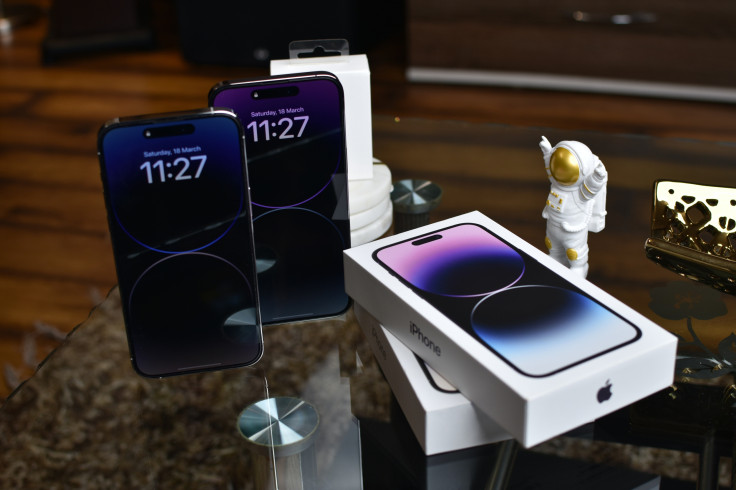Android phones to get iPhone 14-like Emergency SOS via satellite feature
Apple has confirmed it will unveil the iPhone 15 series on September 12.

The word on the street is that the iPhone 14 series' Emergency SOS via satellite feature could arrive on Android phones in the future.
To recap, Qualcomm said it wants to bring satellite support to upcoming smartphones during the CES (Consumer Electronics Show) 2023. However, it looks like Google has already started working on its own version of the fan-favourite feature.
This aligns with an earlier report that indicated Android 14 will come with an iPhone 14-like SMS via satellite feature. Taking to X (formerly Twitter), developer Neïl Rahmouni shared code in the Google Messages app that hinted at integration with the Garmin Response emergency services.
Looks like Google Messages may use Garmin Response for the Satellite Emergency SOS
— Neïl Rahmouni 🐢 (@neil_rahmouni) August 28, 2023
If true it could mean that Emergency Satellite messages would be available in 150+ countries👀https://t.co/egVqM6JaJV
(1st screen is a mockup, 2nd are the translations found in Google Messages) pic.twitter.com/Rza9BUxJwJ
However, it is worth noting that there have been similar discoveries over the past couple of weeks. Rahmouni also hinted at an early version of the UI for sending messages via satellite. Reliable tipster Mishaal Rahman has also spotted a new satellite connectivity API, which will probably be unavailable to third-party apps.
Satellite communication APIs did make their way into Android 14, though everything is marked as "hide" so they're not available to third-party apps.
— Mishaal Rahman (@MishaalRahman) August 10, 2023
There's going to be a satellite service "demo mode". Supported datagrams include SOS messages and location sharing. pic.twitter.com/dk0BxhHamy
Future Android phones could boast this highly sought-after iPhone feature
This implies emergency satellite connectivity will be exclusive to Google Messages when it arrives. Qualcomm's satellite SOS system will use Garmin Response as well. This will ensure familiarity across all Android phones, regardless of the satellite SOS system they use.
Furthermore, Rahmouni believes the service will be available in more than 150 countries. According to Garmin, Response is available in 200 countries and territories. Since the service is already up and running, it doesn't need to face regulatory hurdles like a new service has to go through.
This is probably why the iPhone Emergency SOS via satellite feature is only available in 14 countries so far. Since Garmin supports "more than 210 languages and dialects" a larger group of people will have access to the feature without a language barrier. However, the question is how much the service will cost.
Currently, Garmin's pricing starts at $15 a month. So, it will be interesting to see how this will translate to integration with a mobile device. To those unaware, Apple is currently offering Emergency SOS via satellite in various regions for free.
For instance, the Cupertino-based tech giant made the Emergency SOS via satellite feature available for free in France, Germany, Ireland, and the UK back in December 2022. However, it is worth noting that Apple has made it clear that the service will be available for free only for the first two years.
So, it is undefined what Apple will end up charging for the said service. Google, on the other hand, might understandably take a long time to be ready to launch this kind of feature. For example, it took a long time to develop an AirTag detection system for Android,
Moreover, Rahmouni suggests we take all this information with a grain of salt since things can, and probably will change in future versions. Nevertheless, adding an Emergency SOS via satellite feature can turn out to be a good thing for Android users
Apple is prepping to unveil its next-generation iPhones
Meanwhile, Apple is sparing no effort to bring major upgrades to its much-awaited iPhone 15 series, which is expected to include a standard iPhone 15, iPhone 15 Plus, iPhone 15 Pro, and iPhone 15 Pro Max (or the iPhone 15 Ultra).
Wonder awaits. September 12. #AppleEvent pic.twitter.com/48gRXu3Ux4
— Greg Joswiak (@gregjoz) August 29, 2023
The next-generation iPhone models will make their debut alongside a slew of other Apple devices on September 12 at 10 AM PT (6:00 PM UK time). Unsurprisingly, Apple will stream the event on apple.com and in the Apple TV app.
If earlier reports are anything to go by, all four new iPhone models will come with USB-C ports. Moreover, the iPhone 15 Pro Max / Ultra could be Apple's first iPhone to house a periscope zoom camera. Likewise, the Pro models will be housed in titanium frames, rather than stainless steel.
© Copyright IBTimes 2025. All rights reserved.






















